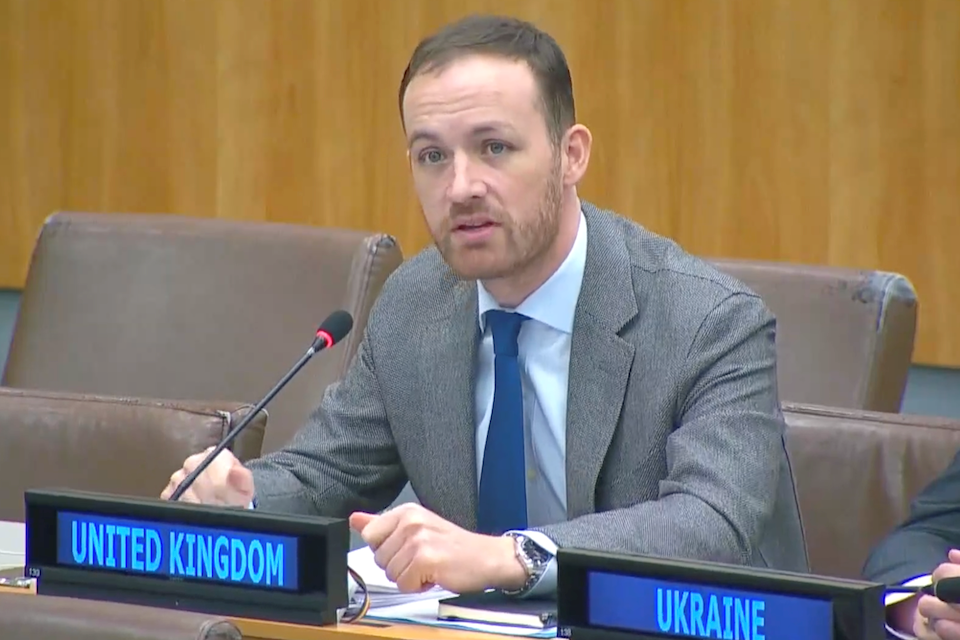Disinformation's dangerous effect is to make us not really believe anything, even the truth: UK Statement at the General Assembly
Statement by UK Spokesperson Mungo Woodifield at the UN General Assembly debate on disinformation

Thank you Chair and I would also like to thank the secretariat and commend the Under-Secretary-General Fleming and the Department of Global Communications for its work, particularly on the Code of Conduct.
Information underpins the functioning of our societies. It shapes our understanding, influences the way we make decisions, how we view each other and the world, and the way we treat each other.
Today, more than 5 billion people have access to the internet. An information tool critical for communication and education. Each year, the number of people online increases.
As we all know that comes with tremendous development benefits, but it also brings with it great risks. We have seen online disinformation spread at an alarming rate, distorting people’s views on issues from health care to climate change.
When disinformation online seeps offline, the very real consequences can be grave. The UK is deeply concerned UN peacekeepers in Mali and DRC have been threatened as a result of lies being spread about their work.
It is not just day-to-day users or bots spreading disinformation.
The Russian government continues to use information operations to undermine Ukrainian sovereignty, dehumanise Ukrainian people, hide war crimes, and to justify its illegal war.
Time and time again Russia tries to use the UN to spread its propaganda. Security Council meetings exploited as a platform to promote wild conspiracy theories about bioweapons and staged provocations. I don’t think any of us are expected to believe any of this, but the cumulative effect is to make us not really believe anything, even the truth. That is extremely dangerous. This onslaught of cynical disinformation is a corrosive force that threatens the integrity of the UN and undermines the fabric of our societies.
As disinformation grows, so correct, reliable and accessible information becomes more important than ever. Protecting and preserving quality journalism is at the heart of that work.
We know that good, independent journalism reported freely – without fear - is essential to a functioning society. It’s also essential to realising the ideals of the UN Charter.
Instead of allowing journalists to freely and safely do their job, many countries around the world put pressure on journalists and, again, the Russia Federation stands out in this regard. It has criminalised accurate reporting and forced many international and Russian journalists to flee. Those who have stayed have been intimidated or detained.
The UK calls on Russia immediately to release all those it has unlawfully detained - including Evan Gershkovich who has now been imprisoned for a month and Vladimir Kara-Murza, who has been sentenced to 25 years in prison exactly because he told the truth about the war in Ukraine.
The UK believes all people must be able to discuss and debate issues freely, to challenge their governments, and to make informed decisions. This is why a UN Code of Conduct must be balanced in human rights, and the protection of fundamental rights to freedom of expression.
Finally, the international community and Member States cannot do this work alone.
As disinformation proliferates and can be catalysed exponentially by artificial intelligence, social media companies, the tech sector and civil society must be included in efforts to tackle mis and disinformation.
Chair, the UK looks forward to working with the DGC to develop and support the Code of Conduct, and to preserve space for accurate and balanced reporting. We look forward to negotiations later this afternoon.